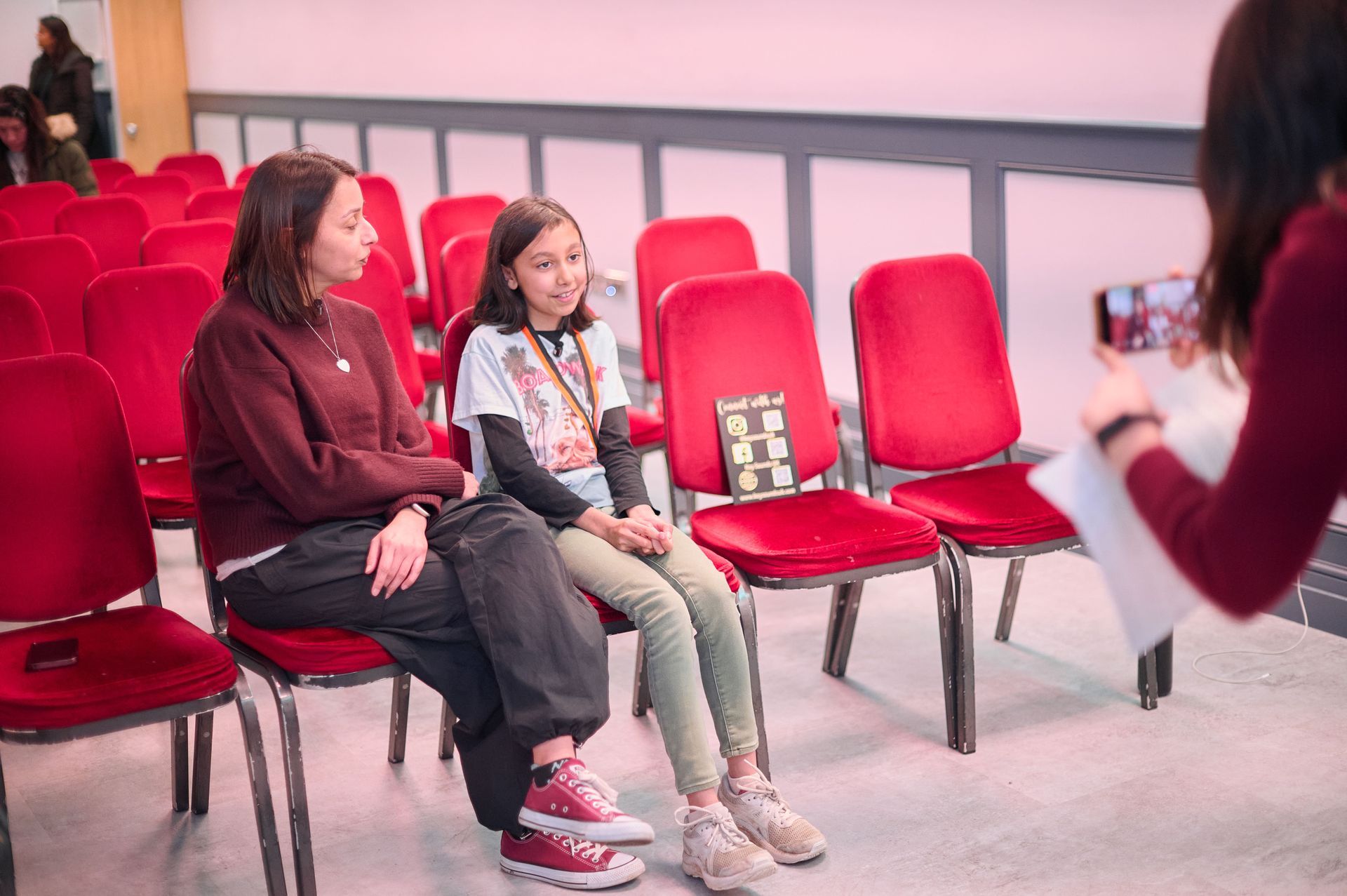Reshmi Patel • April 12, 2021
Playing versus Practicing the Piano
Often students who are new to the piano will do a mixture of ‘playing’ and ‘practicing' their piano.
What’s the real difference between these two? Should we always pick one or the other?
When we ‘play’ the piano this means we are playing through your songs and exercises from start to finish. This can be useful before a performance or at the start or end of your practice session. Solely ‘playing’ isn’t productive if you are looking to improve with your technique and to play the songs you love to a high standard.
When we ‘practice’ the piano this means we are actively choosing to play the difficult sections and musical elements. Some examples of these are: octave jump, moving from sharp to natural, trills, counts and rhythms. In the long run this is a productive way to practice your piano as you will grasp the techniques well enough to learn how to play the pieces you love at a faster rate!
Scenario
Monday, 8am-8:45am you are sitting at your piano and your lesson notes advise you to work on bar 3 and 4 dynamic changes. ‘Dynamics’ means volume. The volume changes in bars 3 and 4 are marked as quiet. This means we would press the keys lightly.
Example of Playing
8am-8:45am you play the song from start to finish. – at this stage of your journey this can work well to check off the box but a more productive way would be to practice in order to add in the volume changes and create interest within the piece.
Example of Practicing
8-8:45am you focus on playing bars 3 and 4 as quietly as you possibly can. You repeat this correctly 5-10 times in a row until this feels easy and natural. This would be a productive practice session and the piece is now on its way to sound like a performance.
Example of a combination of Playing and Practicing
8-8:30am you focus on playing bars 3 and 4 as quietly as you possibly can. You repeat this correctly 5-10 times in a row until this feels easy and natural.
8:30am-8:45am you play the song from start to finish and include the quieter section in bars 3 and 4.
This method works well if you have been able to practice the section you were struggling on within the given time frame. If not, keep on practicing until you have truly mastered the element you have been struggling on. Then try to play slightly more of the section or piece.
Remember that when you are trying out these hacks to look at them little and often but also be patient with yourself. If you wish to know more about these hacks and resources, feel free to take a look around our website or connect with us directly.
To find out more, feel free to get involved in our latest project “The Habits of the Top Performing Piano Players”, fill out our survey: https://bit.ly/2FDs8rf
For your chance to win a Nintendo DS Lite or a £50 Amazon Gift Voucher.


Why do some children continue with piano lessons for many years, while others take time to settle at the start? This is a question many parents quietly wonder about especially in the early months of learning. The answer is rarely about talent or musical ability. More often, it comes down to how supported a child feels as they find their feet, build confidence, and begin to enjoy the learning process. Emotional safety is the starting point not the whole story but it plays a vital role in helping children become comfortable enough to engage, explore, and eventually thrive. Emotional Safety: The Foundation for Learning For a child to learn effectively, they first need to feel: Accepted Understood Supported when things feel challenging In piano lessons, this means children feel able to: Try without fear of being “wrong” Make mistakes without embarrassment Ask questions or need reassurance Without this foundation, learning can feel fragile. With it, learning has room to grow. What Happens Once Children Feel Comfortable When emotional safety is in place, something important shifts. Children begin to: Relax into lessons Take small musical risks Engage more willingly This is often when enjoyment starts to develop. Enjoyment doesn’t mean every lesson is easy or perfect, it means children associate learning with curiosity, encouragement, and progress rather than pressure. Why Enjoyment and Teacher Connection Matter Children are far more likely to remain engaged when they: Enjoy the music they’re learning Feel understood by their teacher Trust the person guiding them week to week A strong, secure teacher–student relationship allows: Honest feedback without fear Gentle challenge without overwhelm Motivation that comes from within the child This connection doesn’t replace structure or expectations; it allows them to work effectively. When Children Want to Do More, Progress Follows Real progress tends to happen when children: Choose to engage Take pride in improving a piece Feel motivated to practise At this stage, practice becomes less about reminders and more about interest. Parents often notice: Fewer battles around practice Greater independence A natural desire to move forward Progress grows from positive momentum, not pressure. How Parents Can Support This at Home Parents play an important role in reinforcing this journey. Simple, supportive actions include: Praising effort rather than results Keeping expectations realistic Allowing learning to be gradual Communicating openly with the teacher When children feel supported both in lessons and at home, learning becomes more enjoyable and sustainable. A Reassuring Final Thought If your child feels comfortable, engaged, and supported, they are on the right path even if progress feels slow at times. Music learning is a long-term journey, and children thrive when that journey feels positive, encouraging, and meaningful. If you ever want to talk about how we support confidence, enjoyment, and long-term engagement in lessons, we’re always happy to help.

If every piano lesson looks different, how do you know the teaching is high quality? Some weeks your child is focused and confident. Other weeks they may be tired, distracted, fidgety, or need more encouragement especially when they’re young. That variation is completely normal. High-quality piano teaching isn’t about every lesson looking the same. It’s about having the right support, structure, and professional oversight in place so learning continues through those natural ups and downs. What makes the difference often isn’t what happens in a single 30-minute lesson, it's everything working quietly behind the scenes to ensure consistency, care, and long-term progress. Teaching as a Profession, Not in Isolation In professional settings, teachers don’t work in silos and high-quality piano teaching is no different. Rather than operating alone, teachers work within a shared framework where: Expectations are aligned Teaching approaches are discussed and refined Progress is viewed over time, not lesson by lesson This doesn’t limit individuality or creativity, it strengthens it. It means your child benefits from collective experience, shared standards, and continuity, rather than relying on one isolated perspective. The Role of Headteacher Oversight Alongside the class teacher, there is also a headteacher who oversees someone who understands your child’s learning journey beyond a single lesson. This provides: Consistency across weeks and terms A second professional perspective when needed Clear continuity if changes ever occur For parents, this means reassurance. For children, it means stability. Clear Structure Without Rigidity High-quality piano lessons are supported by: Clear learning pathways Age-appropriate expectations Thoughtful pacing This allows teachers to adapt lessons when children are tired, distracted, or having an off week without losing direction. Structure doesn’t mean pressure. It means your child’s learning always has purpose. Why This Matters for Your Child When lessons are supported by systems rather than chance: Progress is steadier Confidence is protected Learning continues even during busy phases A high-quality piano lesson is never just about what happens in the room. It’s about the support surrounding it. If you ever want to understand how your child’s learning is supported behind the scenes, we’re always happy to explain. If you have any questions feel free to reach out and ask us!

From the outside, piano lessons can look simple: a weekly session, a teacher, and some practice at home. But what parents are really investing in extends far beyond those visible moments. Here’s what piano lessons include even when it’s happening quietly in the background. Ongoing Professional Thought Each lesson is shaped by more than the piece being played. Teachers consider: How your child responded last week Their confidence and energy levels What pace suits them right now Lessons are adjusted continuously and not delivered on autopilot. Long-Term Progress Planning Progress isn’t just about moving forward in a book. It includes: Developing independence Building coordination and listening skills Learning how to practise effectively Strong foundations now prevent frustration later. Emotional Guidance as Part of Learning Children learn through various approaches, depending on the child. High-quality teaching includes: Encouraging effort over perfection Normalising mistakes Supporting confidence during “wobbly” phases This emotional guidance often determines whether children continue learning long-term. Support Beyond the Lesson Behind each lesson is: Teacher reflection Professional discussion Oversight from the wider teaching team This ensures consistency and continuity even as children grow, change, or go through busy school periods. Why This Matters When you invest in piano lessons, you’re investing in: Stability Thoughtful teaching Long-term development What you don’t always see is often what protects progress the most. If you have any questions feel free to reach out and ask us!
